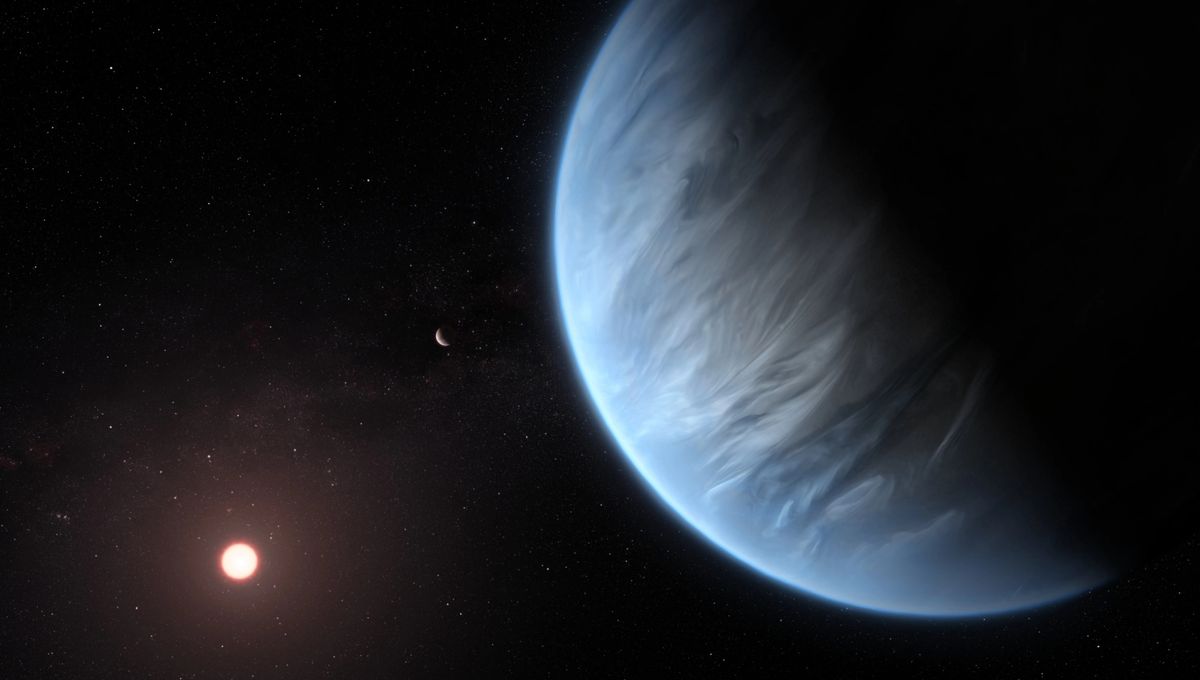
K2-18b is back in the news thanks to new research that quells a controversial claim made in April. Researchers at the University of Cambridge had claimed that in the light filtered through the exoplanet’s atmosphere, they had seen the “strongest hint yet” of biological activity. New observations from a different team, which await peer review, tell of a very different story.
We covered K2-18b back in April in the context of how difficult it is to make solid claims about biological signatures beyond Earth. The world is a sub-Neptune with a radius 2.6 times that of Earth, and in orbit around the habitable zone of a red dwarf 124 light-years from us. The biosignature claim was quickly reported across the world, and something that required careful contextualization was spread as if we had found a living, breathing alien waving at us.
That research on K2-18b builds on many years of work by the University of Cambridge-led team studying this world. They reported the presence of dimethyl sulfide (DMS) and dimethyl disulfide (DMDS). Those gases also exist on Earth, and they are produced by microbes and phytoplankton; this is why they are a possible biosignature.
That is not all. They claimed that the planet is a “hycean” world – a portmanteau of hydrogen and ocean. The idea is that there is a vast water ocean under a hydrogen atmosphere. Even the ocean claim has been controversial, with other teams having found no evidence of an ocean at all.
The new work uses JWST data to better qualify what is going on. The work confirms the presence of an ocean on this peculiar exoplanet, although it can’t confirm if there is a thick or thin atmosphere. They couldn’t find water vapor in the atmosphere, suggesting that there is an efficient cold trap, keeping evaporation to a minimum on this temperate sub-Neptune world.
Those potential biosignatures were all below the threshold for an undeniable detection, and their model suggests that a possible presence of DMS could be explained by sources unrelated to life. They advise considering more and different molecules to use as biosignatures. Astronomers are studying worlds that are very different from our own, and the chemical signatures that seem obvious here on Earth might not fit well with those exoplanets.
“I think it’s difficult to be able to claim biosignatures in hydrogen-dominated atmospheres if the underlying chemical properties of these gases, such as their absorption strengths at different pressures, are still not well understood,” exoplanet atmosphere expert Dr Jake Taylor, from Oxford University, who was not involved in the study, told IFLScience.
It might be disappointing that this is not a world brimming with life, but the work still showcases a fascinating planet: A cool water world, much larger than Earth, orbiting a star much dimmer than the Sun, in its habitable zone.
The paper has been submitted for publication to the AAS Journals and the preprint can be accessed on the arXiv.
This article was amended to include a statement from Dr Jake Taylor.
Source Link: No Life But Lots Of Water – Latest Observations From Controversial Planet K2-18b